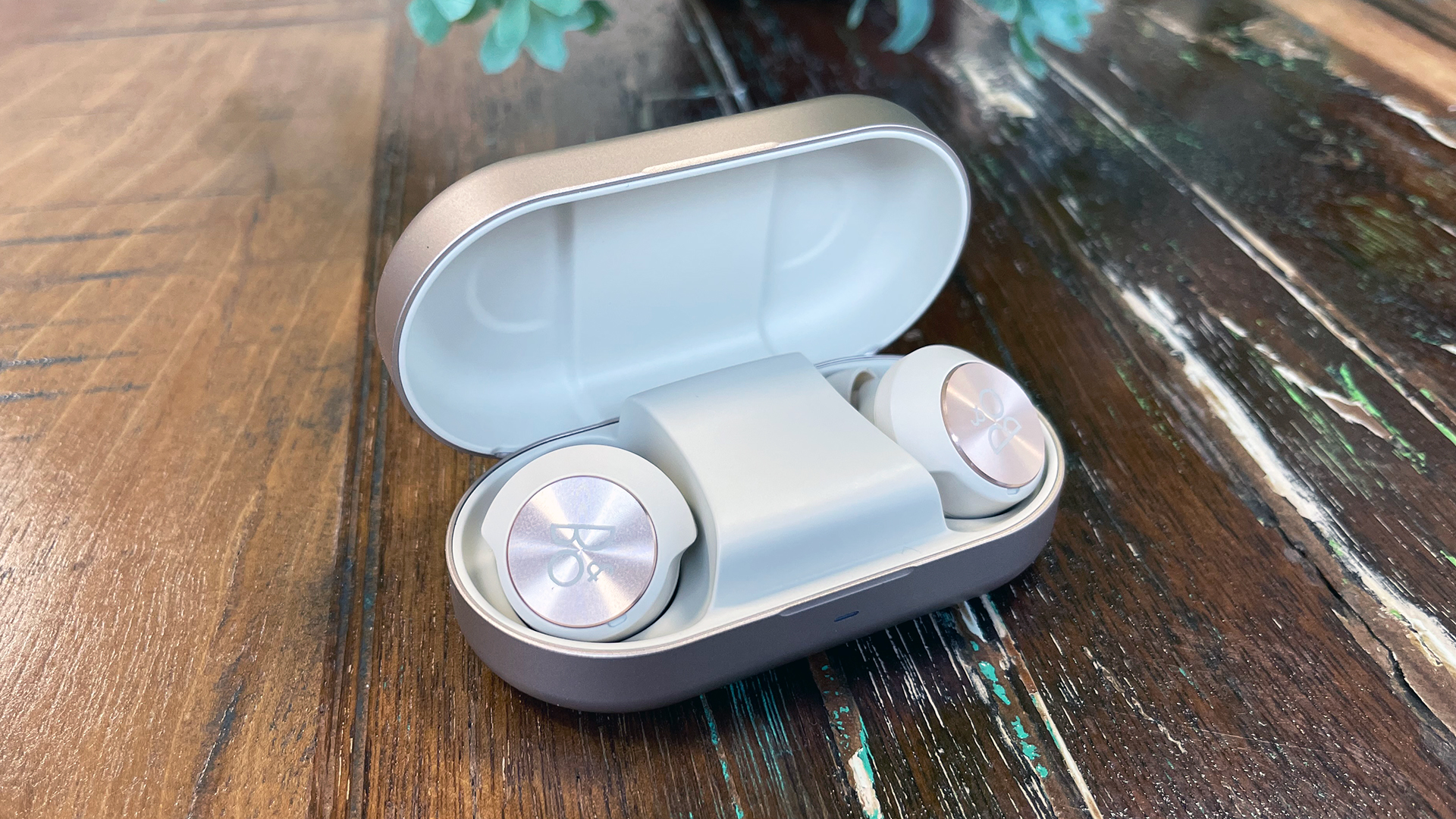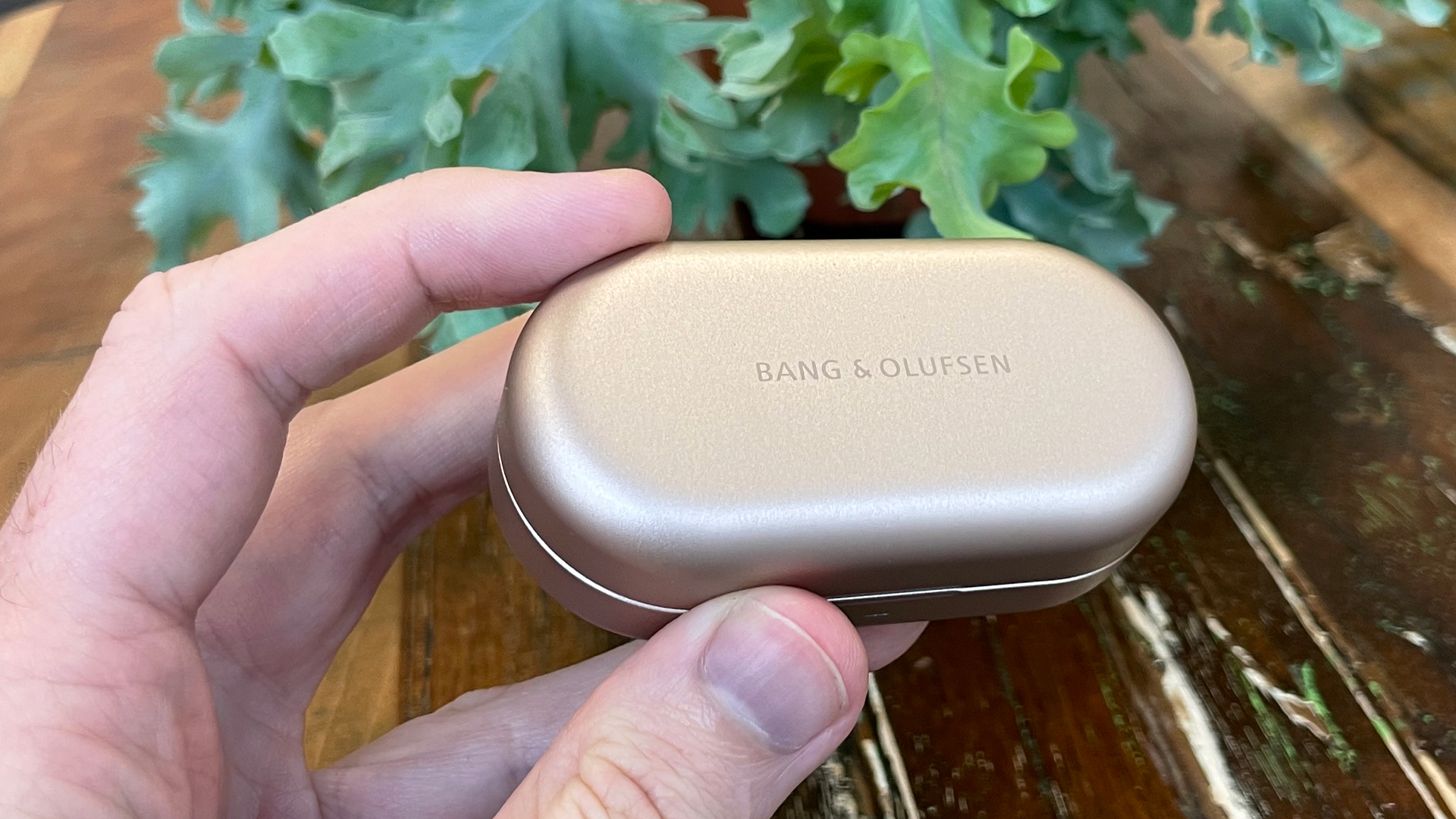Bang & Olufsen Beoplay EQ review: elite wireless earbuds from a master
The B&O Beoplay EQ are as sumptuous in design as they are in sound, but do they match their lofty price?


B&O Beoplay EQ deliver detailed and expressive audio that's a level beyond all but the most premium wireless earbuds. I have some issues with the controls and fit, but they're minor – overall, these are excellent headphones for the premium crowd.
-
+
Expressive, natural, detailed sound
-
+
Premium looks and build
-
+
Good noise cancellation overall
-
+
Volume controls on-device
-
-
Slightly odd fit
-
-
Touch controls are iffy
-
-
ANC doesn't handle wind well
Why you can trust T3

In this Bang & Olufsen EQ review, we're taking a look at the first noise-cancelling in-ear true wireless headphones from the Danish audio favourites. The EQ are high-priced and high-quality, just as you'd expect from the brand that's almost as famous for its premium designs as its decades of audio quality.
The B&O Beoplay EQ are coming straight at the same level as the likes of the phenomenal Bowers & Wilkins PI7 or Master & Dynamic MW08 as some of the best wireless earbuds when it comes to sound.
As you'll read in this review, they stand up with the best when it comes to audio quality, but there are a few fit and usability quirks that mean they fall slightly behind the best of the very top buds for me, and if noise cancellation is a focus then their implementation is a little behind the likes of the Sony WF-1000XM4 and Bose QuietComfort Buds that top our guide to the best noise-cancelling earbuds.
However, the balance they strike between audiophile-baiting sound quality, the strong level of noise cancellation and the tidy design is truly impressive, and they might be the best buy for you for that reason, as long as you're happy paying the premium price. Speaking of which…
B&O Beoplay EQ review: price & release date
The B&O EQ were released in August 2021, for an official price of £349/$399/AU$650. As already mentioned, that's the absolutely top tier of wireless earbuds, where only hi-fi companies with unimpeachable reputations are daring to play.
But that's what B&O is, so in comparison to the direct competition, the price is not out of line. Although most people will be more than happy with what you can get for £100/$100 less, there's a definite step up in audio quality from the very best models.
The EQ are available in 'Black Anthracite' or 'Sand Gold' colours, which are the same price (not always the case with different B&O colour options).
Get all the latest news, reviews, deals and buying guides on gorgeous tech, home and active products from the T3 experts

B&O Beoplay EQ review: features & what's new
The big feature in the EQ – other than general audio quality – is the adaptive noise cancelling, using six built-in mics to listen to the area around you and dampen down the sounds so that you can hear your music more clearly. I'll talk more about the effectiveness of the ANC in the sound quality section below.
There's also a Transparency mode, which lets in outside noise and mixes it with the music, so you can hear what's going on around you. This is pretty effective, though it makes outside noises less prominent and clear than the equivalent mode in AirPods Pro, and there's no way to adjust audio pass-through levels to make it pass through more if you want. I think it's effective, but if I had control, I'd make it just little more transparent.
On the outside of the earbuds are touch panels, which you can use to control things. You can switch between noise cancellation, Transparency mode and turning these features off by tapping the touch panel on the left earbud, though the noises that are supposed to indicate which mode you're in are indecipherable to me. They just don't stick in my memory – too short and not indicative enough. And there's no way to see which mode you're in using B&O's app or anything like that. The only way I could tell for sure was to cycle through until I knew I was in Transparency, and then I knew that one more tap would turn ANC off, and then another tap again would turn it on.
Tapping the right-hand side offers play/pause controls. One more unusual feature here is that you can also adjust volume by tapping and holding – left for down, right for up. I have mixed feelings about this: on the one hand it's a nice option to have that wireless earbuds don't tend to offer; on the other, it feels a bit imprecise and clumsy to use.
You tap and hold, but there's no indication of the changing happening – they just start shifting up or down after a moment. How long should you hold? How quickly will it start? How quickly will it rise? You don't really know, and if your music lulls at the moment you try it, it's easy to overshoot and go too loud, then struggle to get back down to the level you want with precision. Some kind of indicator noise would go a long way here (it's the same for play/pause, which doesn't offer any audio confirmation). However, though imperfectly implemented, it's certainly nice to have the option.
Overall, I'm not a huge fan of the touch controls here. They suffer from the same problem that lots of touchy earbuds do: that it's not very nice to be nudging headphones deeper into your ear. My favourite earbuds for controls are AirPods Pro with their weird-but-effective squeezy sticks, and Beats Studio Buds, which use physical buttons on the outside. In both cases, using the controls doesn't affect comfort or fit, because the pressure is either absorbed or distributed elsewhere.
The actual sound is delivered by a 6.88mm driver that's new for the EQ, and wireless streaming is courtesy of Bluetooth 5.2, including support for aptX Adaptive for high-quality streaming, as well as AAC and SBC Bluetooth standards.
As usual with its app-connected products, B&O enables you to tune the sound profile within the app, using a kind of graph to optionally boost or reduce treble and bass. Yes, the EQ has an EQ.
The battery of the buds is claimed to last 6.5 hours with ANC on, or 7.5 hours with it off. I certainly had no longevity problems with them. The buds and case combined promise 20 hours of listening in total, which is fairly typical.
That battery life is better than the B&W PI7, but not as good as the ridiculous 10-hour endurance of the Master & Dynamic MW08.
You can charge the case over USB-C or Qi wireless charging – B&O says it takes basically the same amount of time to charge to full either way, though the fast charging (20 minutes for 2 hours of use) is best done with a cable.

B&O Beoplay EQ review: design
As with all similar hi-fi-focused buds with noise cancellation, these are fairly chunky, and at 8g per bud are on the heavier side of the market.
They stick out quite far from the ear, though don't look ridiculous because of it. From the front, they're clearly chunky, but look fine. From the side, they look good too. But there's an angle between front and side where their expanding, slightly mushroomy shape is most visible, and there they look a little on the goofy side.
However, absolutely no more goofy than any of the competition. I've tested the 'Sand' pair, and they look nice and subtle against my pale skin – and I prefer the look overall to the bulbousness of the Sony WF-1000XM4, say, or the 'Bluetooth headset chic' of the Bose QuietComfort Buds.
I have found the fit to be perfectly solid with both the medium silicone eartips (small and large also supplied) and the Comply eartips (medium only). I usually prefer to use Comply, because of its more secure fit, and the extra noise isolation it gives you, and that goes doubly here.
Here's the thing: the B&O EQ never fell out of my ears or even became very loose during just casual use, but they also didn't feel very secure while using them, other than with the Comply tips (which not everyone likes). The problem is that they're weighty and they stick out quite a way, and also are large enough that they touch the top of my antitragus (the bit of cartilage just above your ear lobe). This makes them feel like they're always drooping down and are in danger of falling out of my ears… but a) they're not, and b) ironically, resting on a part of my ear makes them more secure, if anything.
But the end result is that I keep checking and fiddling them. I've already started getting more used to this in my time with them, and I'm sure I'd get totally inured to it over time, but again it's just something I don't have with other headphones.
I should note, I didn't do any hardcore exercise with them, nor would I try – that's not what they're designed for, and the fit has little chance of standing up to it. Their rating of IP54 for sweat/waterproofing is lower than I'd choose for exercise buds, anyway.
The case is lovely and premium, perfectly matched to the buds, and pleasingly compact. There is a flipside to this, which is that the buds only just fit in there – there's no extra tolerance at all if they're not seated quite right. And there's a real trick to making sure they're in properly – again, at the end of my review time, I'm now a deft hand, but I spent the first few days putting them in the wrong way round, or just a bit off and wondering why the case hasn't snapped shut fully.

B&O Beoplay EQ review: sound quality
As much as I've been picking out small flaws of the B&O EQ just as much as I've been praising them, when it comes to sound things are overwhelmingly positive – as you'd expect, from B&O.
The sound profile is fairly neutral, with a slight warmth to the mid-range in my opinion – this is pretty classic B&O.
The real advantage you get for your money compared to the likes of Sony's high-end buds or AirPods Pro is a more open and expansive sound, bring a lot more clarity and definition to the mid-range in particular. Voices sound more natural, instruments stand out from each other better in dense mixes – even compared to really strong performers in the £250/$250 range, there's a sense of the walls falling away when you switch to the EQ.
They're a really easy listen, too – to get all that detail, B&O hasn't made the sound overly sharp or filled it with a sense of attack. It does a lot of complex things effortlessly, like a string quartet.
My only real criticism of the audio is that it doesn't dig quite as deep for bass as I'd like. You can use the app to tweak this, but while this makes bass thumpier and louder, it doesn't add the extra depth I want, and also puts off its balance with the mid-range a little.
In comparison, the Bowers & Wilkins PI7 does offer a little more bass, and also elevates the treble out of the mix a little more clearly too. However, the B&O EQ puts across the mid-range more strongly – I think preferring the slightly cleaner treble or the richer mid-range is a matter of personal preference.
The B&O EQ is more suited to acoustic and vocally-led music, the B&W PI7 slightly more to pop and rock.
The active noise cancellation is pretty good in most casts – this is one area where it beats the competition at the same price. For suppressing chat in the office, or cutting out droning sounds, it's better than the average noise cancelling earbud, though not as strong as Apple, Sony or Bose efforts when it comes to harder tests such as traffic noise.
Its major flaw is wind noise, though it's certainly not alone in that. It picks it up something fierce, and you're better off turning the ANC off than trying to hear it over even mild wind.
B&O Beoplay EQ review: verdict
If you want a pair of elite earbuds with sound that suits classic hi-fi fans, but doesn't miss out on mod-cons like active noise cancellation, then the B&O EQ are a great option.
They have some foibles in their fit and controls, but nothing that's a dealbreaker, and the audio quality is like a lovely velvet blanket to wrap yourself up in. Throw in pleasing extras like a fairly compact case, premium finish and useful app options, and these will make music fans happy.
However, at this ultra-premium price, some of the competition offer a little more in terms of features, so it's just about whether the balance of the EQ suits you better than the others on offer.
B&O Beoplay EQ review: also consider
I've talked about them a lot, but the real competition at this price is the Bowers & Wilkins PI7 or the Master & Dynamic MW08.
The B&W PI7 sound just as good (and I slightly prefer their audio profile overall), though the noise cancellation and battery life are a bit weaker. But I prefer the design of the PI7's earbuds, and for the same price, you get some very cool extra features in the PI7: the case acts as a wireless transmitter, so you can plug them into a computer or plane entertainment system, and they transmit in aptX CD-quality tot the buds. That's on top of being regular Bluetooth earbuds. Very smart. Here's our full five-star Bowers & Wilkins PI7 review.
The MW08 are also on the same level sonically, and offer an astonishing 10 hours of battery life from the buds between charges. They're a little cheaper too. Check out full Master & Dynamic MW08 review.

Matt is T3's former AV and Smart Home Editor (UK), master of all things audiovisual, overseeing our TV, speakers and headphones coverage. He also covered smart home products and large appliances, as well as our toys and games articles. He's can explain both what Dolby Vision IQ is and why the Lego you're building doesn't fit together the way the instructions say, so is truly invaluable. Matt has worked for tech publications for over 10 years, in print and online, including running T3's print magazine and launching its most recent redesign. He's also contributed to a huge number of tech and gaming titles over the years. Say hello if you see him roaming the halls at CES, IFA or Toy Fair. Matt now works for our sister title TechRadar.